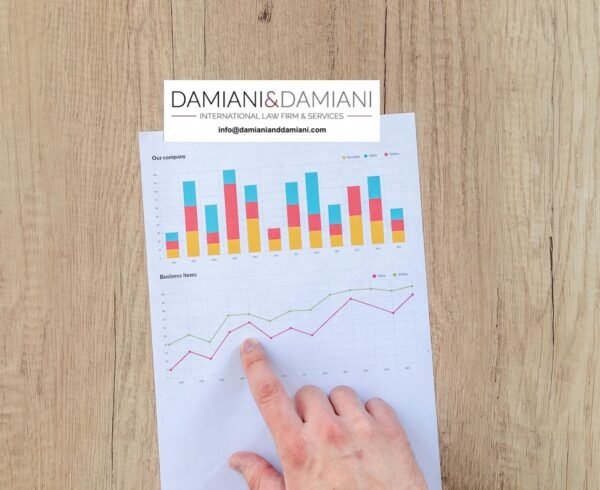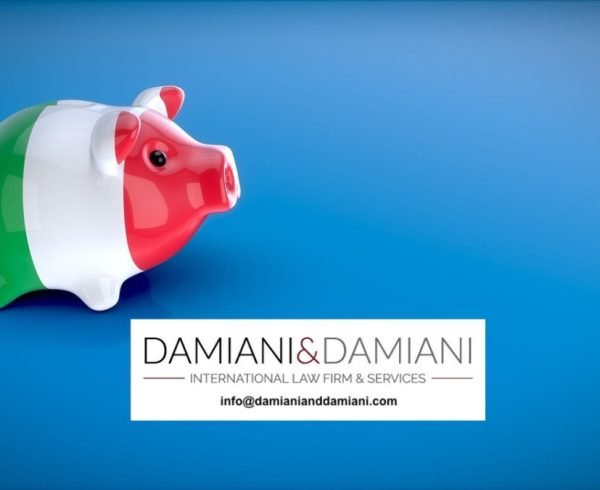The general rule to our understanding of corporate double taxation and capital income is:
- Dividends due to the foreign company are paid to the company and may be additionally taxed in Italy on the tax on capital paid abroad.
- Dividends of natural persons would be paid to the current accounts of natural persons resident in Italy, net of tax according to the Italian law on dividends, or outside Italy in case of additional tax on outgoing dividends if one of the shareholders is fiscally resident in the country of origin of the company.
Another aspect concerns VAT payment and exemption cases when the activity carried out by foreign companies based in Italy involves legal persons outside Italy.
How corporate dividend taxes are paid in Italy. Double taxation
With regard to all corporate forms, the Italian Civil Code states that corporate participation translates into shares or capital quotas that can be owned by natural or legal persons in shares in the case of S.p.A. and S.a.p.A. (stock companies) or from company shares in the case of S.r.l. (limited company).
The difference between capital income and business income. Dividends and double taxation on divide
In summary:
- Business income is the economic profit realized through the exercise of a business activity;
- Capital income or dividends is the income generated in Italy or abroad from the use of money invested in company quotas or shares.
Method of taxation of dividends paid by a company resident in Italy to companies or individuals resident in Italy
The taxation of shares and dividends varies according to two fundamental factors:
- the share percentage held by the shareholder;
- the location of the company paying the dividends.
With regard to the taxation of earnings from corporate participation, a major distinction is:
- whether or not the company is listed on the stock exchange;
- the share owned by the shareholder.
The other factor to consider in taxation is the location of the company in which part or all of the capital is owned, in shares or quotas. It is worth noting the general rule in Italy whereby the State, or tax authorities, penalize dividends paid by companies producing profits in countries with privileged taxation.
Dividend taxation rules for resident companies to avoid double taxation
In case of dividends distributed by resident companies and deriving from qualified shares, the taxation applied and its rates depend on the recipient of said dividends, namely:
- fixed tax base of 26% for natural persons not in the business regime;
- tax base at 58% for natural persons operating under the corporate regime;
- 95% exemption for joint stock companies.
In case of dividends distributed by resident companies and deriving from unqualified shares, taxation and rates vary for:
- fixed tax base for natural persons who do not have a VAT number;
- tax base of 58% for natural persons with a VAT number and partnerships;
- 95% exemption for joint stock companies.
Taxation of dividends leaving Italy from resident companies to foreign companies of the European Union or EEA white list to avoid double taxation on dividends
When an Italian corporation pays dividends to a foreign company, two taxation rules apply:
- The withholding is made as a tax at a 26% rate on profits paid to non-resident persons;
- Should the outgoing dividends be paid to companies or entities resident in EU or EEA countries subject to corporate income tax in the Member States of residence (EU, EEA white list), the withholding tax is 1.20%.
The conditions for benefitting from the reduced rate and avoiding international double taxation are as follows:
- foreign companies must be subject to corporate taxation in the country of residence;
- the companies’ residence must be located in one of the countries within the EU or the EEA white list.
European double taxation and the application of the “mother / daughter” directive on outgoing dividends
The Mother-Daughter Directive, no. 2011/96/EU, defines the objective scope of application of the taxation of outgoing dividends in the EU. This is a preferential treatment to avoid or contain double taxation of dividends for companies in the EU. The parent-subsidiary regime is essentially a favorable discipline that allows, provided certain requirements, the following:
- The non-application of withholding tax on dividends paid within the EU;
- Refund of any withholding tax imposed on the company receiving the dividend in the EU.
The requirements of the mother-daughter directive to avoid economic double taxation in the EU context
- Companies must be joint stock companies;
- The parent company holds a direct share of no less than 10% of the capital of the company that distributes the profits;
- The companies reside for tax purposes in a EU Member State;
- Companies are subject to taxation in the country of residence without the possibility of benefiting from option or exemption regimes that are not territorially or temporally limited;
- The company share is held continuously for at least two years.
Withholdings on corporate dividends paid to persons not resident in Italy and who do not fall within the EU, in the SEE White List
In these cases or in cases where the double taxation regime does not fall within those provided for by the parent-subsidiary directive, the rules to refer to are the bilateral conventions against double taxation in force between Italy and the foreign company’s country of residence. It is necessary to examine the provisions of the convention stipulated between Italy and the foreign state of residence of the person receiving the dividend. A recent judgment of the Italian Court of Cassation established that tax regimes against double taxation are not mutually exclusive, but can be alternative depending on the cases required for their application.














